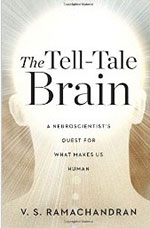
The Loch Ness Monster, or Nessie, is a creature in Scottish folklore that is said to inhabit Loch Ness in the Scottish Highlands. It is often described as large, long-necked, and with one or more humps protruding from the water. Popular interest and belief in the creature has varied since it was brought to worldwide attention in 1933. Evidence of its existence is anecdotal, with a number of disputed photographs and sonar readings.

Humpty Dumpty is a character in an English nursery rhyme, probably originally a riddle and one of the best known in the English-speaking world. He is typically portrayed as an anthropomorphic egg, though he is not explicitly described as such. The first recorded versions of the rhyme date from late eighteenth-century England and the tune from 1870 in James William Elliott's National Nursery Rhymes and Nursery Songs. Its origins are obscure, and several theories have been advanced to suggest original meanings.
The New York Times Best Seller list is widely considered the preeminent list of best-selling books in the United States. It has been published weekly in The New York Times Book Review since October 12, 1931. In the 21st century, it has evolved into multiple lists, grouped by genre and format, including fiction and non-fiction, hardcover, paperback and electronic.

"Old King Cole" is a British nursery rhyme first attested in 1708. Though there is much speculation about the identity of King Cole, it is unlikely that he can be identified reliably as any historical figure. It has a Roud Folk Song Index number of 1164. The poem describes a merry king who called for his pipe, bowl, and musicians, with the details varying among versions.

"Pop! Goes the Weasel" is an English nursery rhyme and singing game. It is often used in Jack-in-the-box toys.

Tweedledum and Tweedledee are characters in an English nursery rhyme and in Lewis Carroll's 1871 book Through the Looking-Glass, and What Alice Found There. Their names may have originally come from an epigram written by poet John Byrom. The nursery rhyme has a Roud Folk Song Index number of 19800. The names have since become synonymous in western popular culture slang for any two people who look and act in identical ways, generally in a derogatory context.

"Jack and Jill" is a traditional English nursery rhyme. The Roud Folk Song Index classifies the commonest tune and its variations as number 10266, although it has been set to several others. The original rhyme dates back to the 18th century and different numbers of verses were later added, each with variations in the wording. Throughout the 19th century new versions of the story were written featuring different incidents. A number of theories continue to be advanced to explain the rhyme’s historical origin.

A jack-in-the-box is a children's toy that outwardly consists of a box with a crank. When the crank is turned, a music box mechanism in the toy plays a melody. After the crank has been turned a sufficient number of times, the lid pops open and a figure, usually a clown or jester, pops out of the box. Some jacks-in-the-box open at random times when cranked, making the startle even more effective. Many of those that use "Pop Goes the Weasel" open at the point in the melody when the word "pop" would be sung. In 2005, the jack-in-the-box was inducted into the American National Toy Hall of Fame, where are displayed all types of versions of the toy, starting from the beginning versions, and ending with the most recently manufactured versions.
Karl Shuker is a British zoologist, cryptozoologist and author. He lives in the Midlands, England, where he works as a zoological consultant and writer. A columnist in Fortean Times and contributor to various magazines, Shuker is also the editor-in-chief of the Journal of Cryptozoology, which began in November 2012.

"Three Blind Mice" is an English-language nursery rhyme and musical round. It has a Roud Folk Song Index number of 3753.
"Salad days" is a Shakespearean idiomatic expression meaning a youthful time, accompanied by the inexperience, enthusiasm, idealism, innocence, or indiscretion that one associates with a young person. A more modern use, especially in the United States, refers to a heyday, a period when somebody was at the peak of their abilities—not necessarily in that person's youth. The quote "salad days" is from the Shakespearean play Antony and Cleopatra and is spoken in Act 1, Scene 5, by Cleopatra.

"There was an Old Woman Who Lived in a Shoe" is a popular English language nursery rhyme, with a Roud Folk Song Index number of 19132. Debates over its meaning and origin have largely centered on attempts to match the old woman with historical female figures who have had large families, although King George II (1683–1760) has also been proposed as the rhyme's subject.

The legend of the Loch Ness Monster is well known throughout Scotland and the rest of the world and has entered into popular culture.

Jack and Jill is an American bimonthly magazine for children 6 to 12 years old that takes its title from the nursery rhyme of the same name. It features stories and educational activities.

The Tell-Tale Brain: A Neuroscientist's Quest for What Makes Us Human is a 2010 nonfiction book by V. S. Ramachandran that explores, from a neurological viewpoint, the uniqueness of human nature.
Alex Cross is a crime, mystery, and thriller novel series written by James Patterson. The series focuses on Metropolitan Police Department detective and father Alex Cross as he faces threats to his family and the city of Washington, D.C.. Supporting characters include two of Cross's children, Damon, and Janelle, as well as his grandmother Nana Mama. The series is usually narrated in first-person perspective by Alex Cross, and occasionally from the villains' point of view in third-person.

"Hark, Hark! The Dogs Do Bark" is an English nursery rhyme. Its origins are uncertain and researchers have attributed it to various dates ranging from the late 1000s to the early 1700s. The earliest known printings of the rhyme are from the late 1700s, but a related rhyme was written down a century earlier than that.

12 Rules for Life: An Antidote to Chaos is a 2018 self-help book by Canadian clinical psychologist and psychology professor Jordan Peterson. It provides life advice through essays in abstract ethical principles, psychology, mythology, religion, and personal anecdotes.














